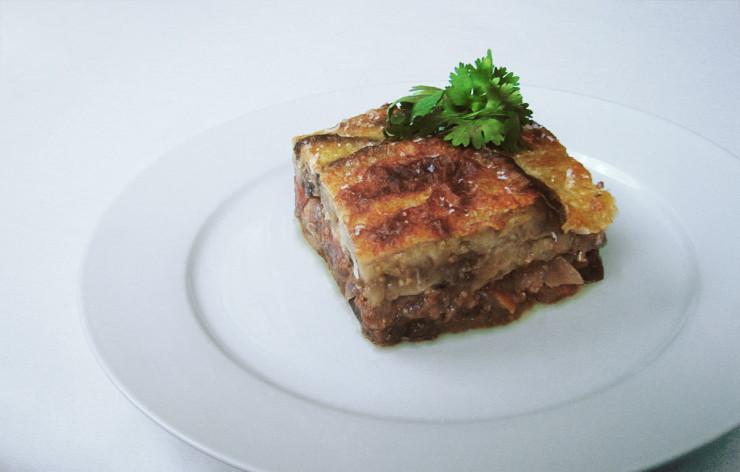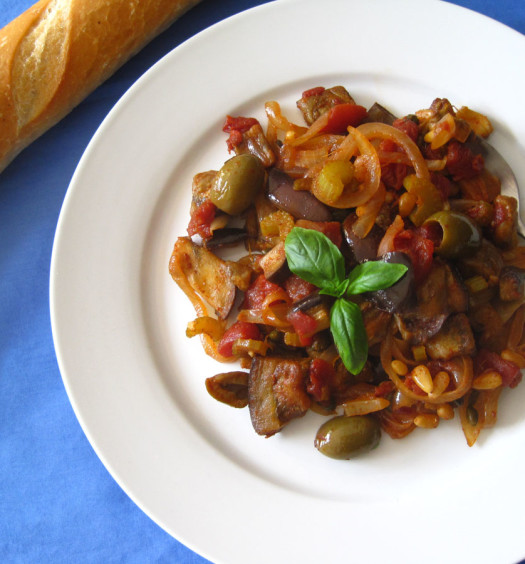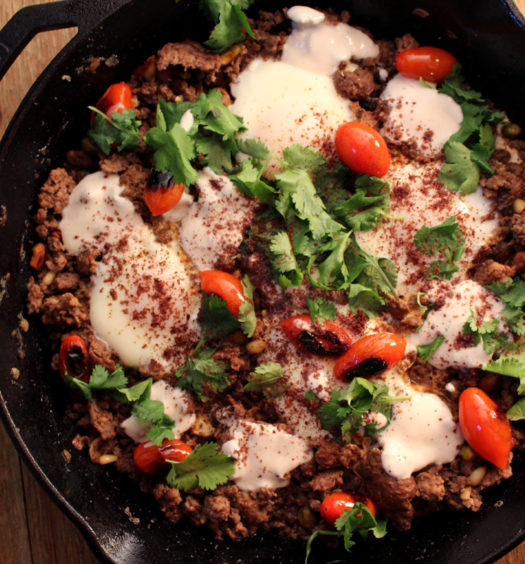Moussaka
Moussaka – LADL Flowchart Recipe
Origin: Middle East
About: Moussaka is a baked lamb and eggplant casserole covered with a thick layer of bechamel sauce (like a roux) that becomes golden and crusty. It can be made with other ingredients besides lamb and eggplant, using beef, or vegetables such as zucchini or potatoes. Moussaka is commonly referred to as a Greek food, but it is not Greek. It’s believed the dish migrated from Arabia. Turkey describes a casserole of baked sliced eggplants and meat, whereas Lebanon describes it is a cold dish of fried eggplants dressed with a rich tomato sauce.
In a Moussaka recipe from The Majestic Family Cook-book (Gallier, 1897), “Prepare a good mutton hash, and with it stuff eight eggplants and eight fresh tomatoes; lay them in a deep baking dish, one beside the other, pour tomato sauce over, strew the surfaces with bread-raspings, baste with melted butter, and bake in the oven for fifteen to twenty minutes; serve exceedingly hot on the same dish.” Although the modern recipe has expanded on the ingredients, the base ingredients of eggplant, tomato, and dairy top have stayed the same. The bachamel sauce of milk, flour, egg, and spices appears to be a modern addition.
What varies the most between recipes is the way the eggplant is prepared. Some fry it, some sweat it then bake it, some broil/grill it. Any method works, but I’ve found that frying the eggplant introduces significantly more oil into the dish. It’s important to prepare the eggplant so all excess water is removed before assembling the moussaka. Otherwise, it drops water while baking the layered casserole and you end up with a watery base.
Additions:
- Oregano (dried), 2 tsp — added to the filling
- Ginger (ground), 1/2 tsp — added to the lamb
- Allspice (ground), 1/4 tsp — added to the lamb
- Romano (grated), 1 cup — added to the Bachamel sauce
- Goat cheese, 1/2 cup — added to the Bachamel sauce
Kremezi, Aglaia. “‘Classic’ Greek Cuisine: Not So Classic”. The Atlantic. July 13, 2010. http://www.theatlantic.com/health/archive/2010/07/classic-greek-cuisine-not-so-classic/59600/




